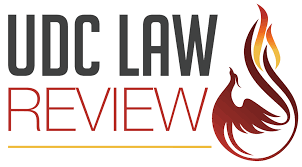
Abstract
Reasoning that judicial economy is best served when a law enforcement agency determines how to expend its limited enforcemen tresources, the Supreme Court has held that the decision to exercise prosecutorial discretion is presumptively unreviewable.1 In the realm of immigration law, Deferred Action for Childhood Arrivals (DACA) and the recently announced Deferred Action for Parents of Americans and Lawful Permanent Residents (DAPA) promote the goal of judicial economy by imposing a freeze on the deportation of eligible noncitizens who either entered the United States as children or who have a child who is a U.S. citizen or lawful permanent resident (LPR).2 In doing so, these programs conserve enforcement resources on these low priority cases. The social policy underlying DACA is that children or individuals brought to the U.S. as children lack the intent to violate immigration laws and should not be removed from the only country they know as home. DAPA, which shields the parents of U.S. citizensand LPRs from removal, hinges on the public interest in protecting thefamily unit.4 To date, the DAPA program has been suspended due to afederal court injunction order.5 DACA relief lasts two years and isrenewable but only for an additional two years.6
First Page
334
Recommended Citation
Anna Oguntimein,
The Struggle to Rise Above the Shadows Before Sunset: A Critical Discussion on The Need to Lift The Expiration and Renewal Requirements of DACA and DAPA,
18
U.D.C. L. Rev.
334
(2015).
Available at:
https://digitalcommons.law.udc.edu/udclr/vol18/iss2/9

